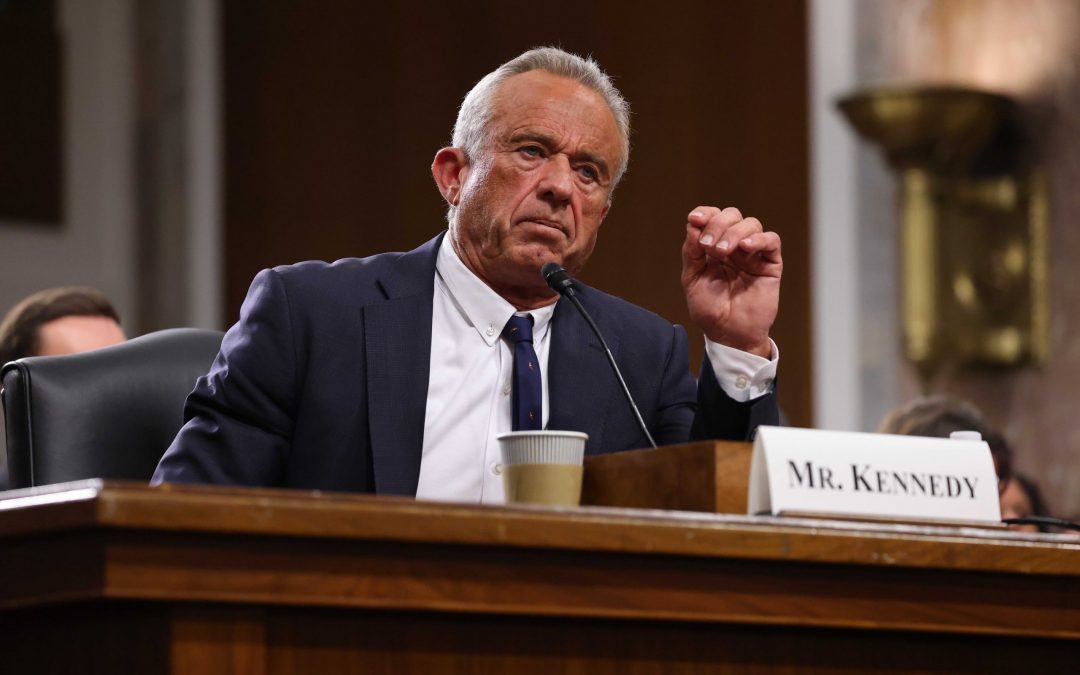WASHINGTON — Health Secretary Robert F. Kennedy Jr. on Wednesday labeled the increasing rates of autism in children an epidemic and said federal research dollars will be dedicated to identify the cause.
Kennedy’s statements at a news conference contradicted decades of autism research, which has generally not labeled the increased rates as an epidemic.
And although certain environmental factors have been correlated to potentially contributing to autism spectrum disorder, health departments, including the Centers for Disease Control and Prevention, linked increasing autism rates to better identification methods.
That’s because past administrations funnel funds toward identifying the condition earlier in childhood.
“One of the things that I think we need to move away from today is this ideology that the autism prevalence increases, the relentless increases, are simply an artifact of better diagnoses, better recognition or changing diagnostic criteria,” Kennedy said.
The news conference came a day after the CDC published a report that among 8-year-olds, 1 in 31 have autism, with higher rates in certain marginalized groups. The study also found that autism is more prevalent in boys than girls.
The annual estimates from the CDC have increased. The 2000 report found that 1 in 150 children had autism. The 2020 report found the rate was 1 in 36.
Despite the health secretary’s claims, the study itself did not directly attribute the increased rate to specific environmental factors.
“Differences in the prevalence of children identified with [autism spectrum disorder] across communities might be due to differences in availability of services for early detection and evaluation and diagnostic practices,” the report said.
The report also cited changes in insurance coverage for children and the changes in eligibility criteria for intervention services for the increased prevalence.
The report never used the term epidemic, but Kennedy used it frequently in the news conference and said those who do not place the cause on environmental toxins are participating in “epidemic denial.”
“This is a preventable disease,” Kennedy said. “We know it’s an environmental exposure, it has to be — genes do not cause epidemics. It can provide a vulnerability. You need an environmental toxin.”
In response to Kennedy’s statements at the press conference, Zoe Gross, director of advocacy at the Autism Self Advocacy Network, said there is no evidence in the CDC’s report “of any external or environmental cause of autism,” and that the health secretary’s language is simply “designed to increase the stigma against autism and autistic people.”
“Their talk of an autism ‘epidemic’ is only in service of their anti-vaccine agenda, and does nothing to benefit autistic people,” Gross said.
Before becoming secretary of Health & Human Services, Kennedy founded and served as chairman of the Children’s Health Defense, a non-profit organization known for anti-vaccine rhetoric, from 2015 to 2023.
Kennedy has continuously denied that he opposes vaccines, and recently encouraged people to take the measles vaccine in response to the growing measles outbreak in the United States. As of Tuesday, the CDC has confirmed 712 people cases this year, the majority in Texas. Three deaths were among these.
At a Cabinet meeting last week, Kennedy said the causes for the increased rates of autism will be discovered by September, a statement that shocked members of the health community.
During that meeting, President Donald Trump said the cause of autism was “something artificial,” and that “maybe it’s a shot,” he said, referring to vaccines.
After the Cabinet meeting, the Autism Society of America responded, calling the epidemic label and the September deadline “harmful, misleading and unrealistic.”
“Leading disability organizations, the scientific community, and medical experts agree: more rigorous, science-based research is necessary, not speculation, oversimplified timelines or diminished transparency,” the statement read.

